AARON PATRICK: The biggest winners and losers of Australian politics in 2025
AARON PATRICK: On the last day of Parliament for 2025, The Nightly identifies the men and women who succeeded and failed in a year that may have changed the nation forever.
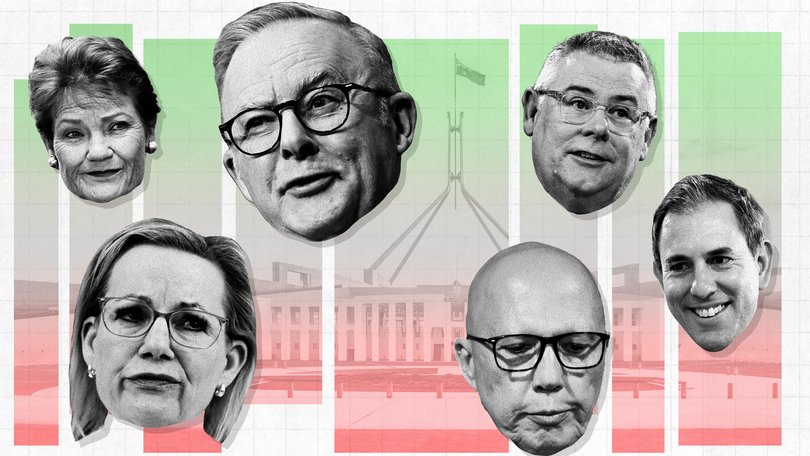
Even though the sun shone over Canberra on Thursday, the temperature barely hit 21, perhaps proof that even unrestricted sunlight isn’t enough to warm the cold hearts of the men and women who run Australia.
In Parliament House, weary MPs arrived for 2025’s last sitting day, a year that may have been one of the most important in modern Australian history when the government did not change.
Like their elected representatives, Australians participated in profound debates that helped define the nation, from children’s access to social media to a vicious war in a foreign land.
Sign up to The Nightly's newsletters.
Get the first look at the digital newspaper, curated daily stories and breaking headlines delivered to your inbox.
By continuing you agree to our Terms and Privacy Policy.The struggle over policy, politics and the future produced winners and losers. The Nightly has listed the top ten based on the entirely subjective methodology of personal opinion.
Whether you agree or disagree with the list, it is hard to dispute that Australian politics ends 2025 looking very different to February 4, when Anthony Albanese, on the first sitting day, promised to provide “hope in an uncertain world”.
The winners
Anthony Albanese: The Prime Minister’s political and electoral ascendancy following his crushing May defeat of the Coalition is more remarkable given even sympathetic commentators regarded him after Labor’s 2019 loss as uninspiring, unsophisticated and possibly lazy.
“Labor MPs think the party is paralysed, directionless and in denial about the election,” one Labor-leaning columnist wrote in The Australian in October 2019. “The ‘general view’ is that Albanese has turned out to be worse than most thought.”
Six years later, the Prime Minister won his second election with more seats than any party in history. His success wasn’t driven by rhetorical brilliance or policy innovation, but a shameless willingness to bribe voters and a tactical trickiness that allowed him to outmanoeuvre an opponent out of his depth.
Pauline Hanson: One Nation’s founder and leader received a one-week Senate suspension on Wednesday for wearing a burqa in the chamber. Condemned by the political establishment for what was seen as an anti-Muslim provocation, she responded: “The usual hypocrites had an absolute freak out.”
Even devout Australian Muslims rarely wear the full face covering, which Senator Hanson wants banned, and the institutional backlash is likely to bolster her support.
Despite being derided as unusually inarticulate for a politician, Senator Hanson has raised support for One Nation from 6.4 per cent at the election to between 14 and 18 per cent in polls this month. Many of her new supporters are Liberal Party defectors.
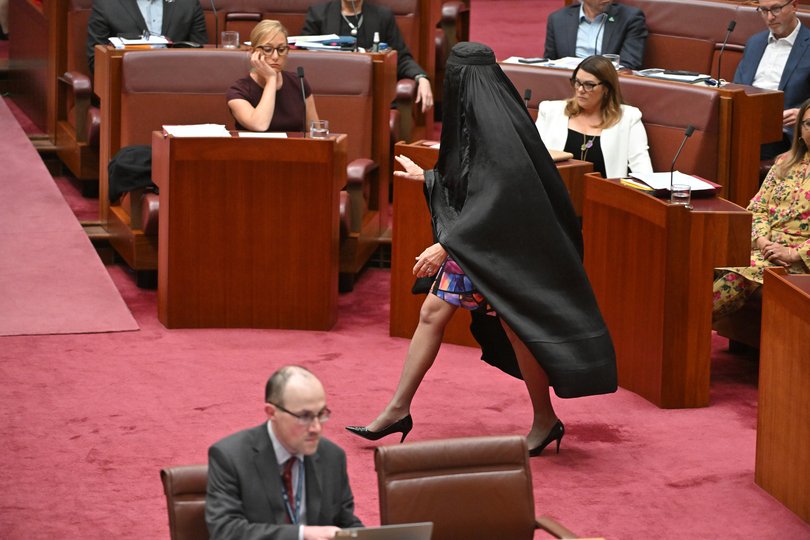
Murray Watt: The Environment and Water Minister has risen slowly. After a failed career as a state Queensland MP in the 2010s, he took almost a decade to become a prominent Canberra figure.
The wait was worth it. On Thursday, Mr Watt delivered a policy victory for the Labor Party that even the much-hyped Tanya Plibersek could not: the creation of an Environment Protection Agency that promises to accelerate approvals or rejections of factories, mines, housing and other developments.
Mr Watt’s easy communication style, which ranges from reassuring to cutting, makes him a formidable government advocate alongside Penny Wong, Jason Clare, Tony Burke and Jim Chalmers.
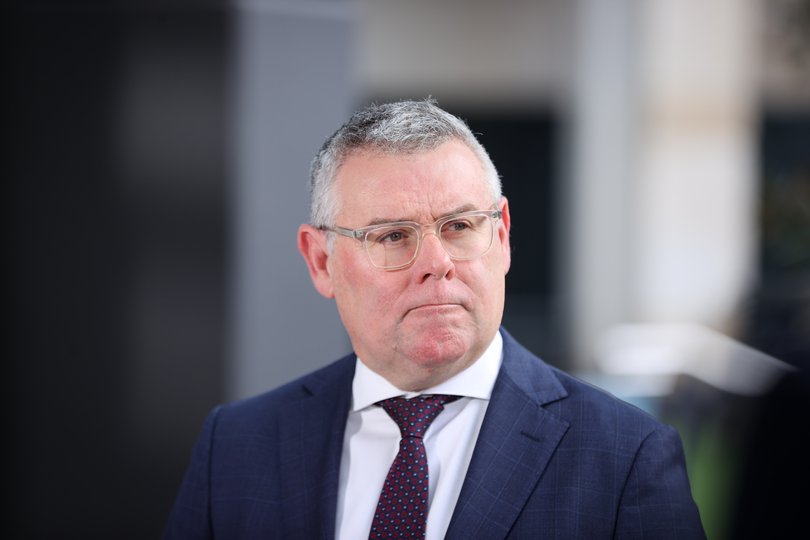
Tim Wilson: At the start of 2025 the gay libertarian was just another failed politician looking for Facebook and Instagram likes.
Come the Christmas season, Mr Wilson has a front bench seat and appears in polls of potential Liberal leaders. Like colleague Andrew Bragg, Mr Wilson has shown the way to thrive in opposition is relentless attention seeking.
The industrial relations spokesman possesses a rare quality for a politician: a public sense of humour.
He was recently singled out by Mr Albanese for promising Parliament would never sit on Melbourne Cup day if he became prime minister — a slap-down that generated more attention for Mr Wilson’s undeclared campaign to take over as Liberal leader.
Sussan Ley: The single grandmother from country NSW adopted a strategy that delivered her the Liberal Party leadership in May after 24 years of unremarkable parliamentary service: offend as few people as possible.
Then, facing a conservative uprising this month, Ms Ley pivoted from what she called the “sensible centre” to scepticism towards climate-change policies the Liberal Party have supported since the turn of the decade.
The political pragmatism saved Ms Ley’s job, making her one of 2025’s top political winners.
The losers
Sussan Ley: The climate-policy shift is also why Ms Ley is one of the year’s losers. The change demonstrated that Ms Ley’s centrist supporters among Liberal MPs are in the minority. Conservative rivals Angus Taylor and Andrew Hastie were able to impose their views on the party. Ms Ley finishes the year weakened and vulnerable.
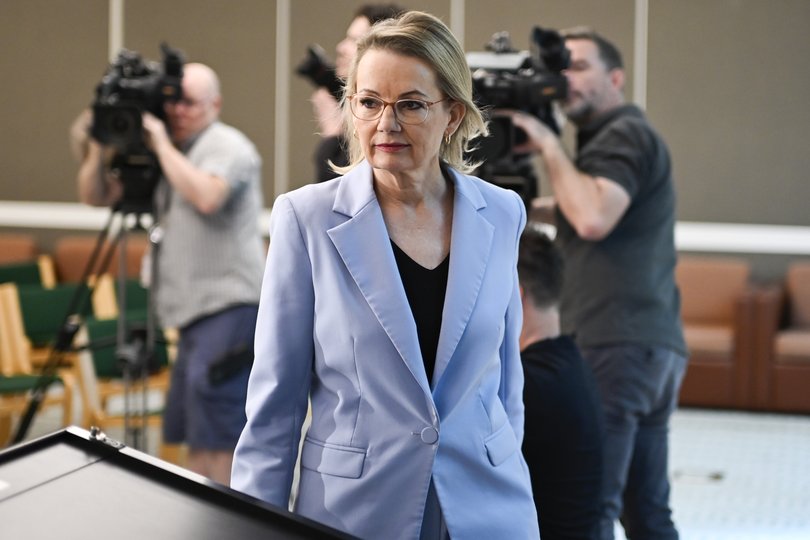
Peter Dutton: The ex-policeman and failed Liberal leader has kept a low profile since May’s defeat. Which is wise, given his party and an independent study hold him primarily responsible.
On Wednesday, the Australian Election Study found Mr Dutton was the least popular election leader in at least four decades, especially among women, and drove the Liberal Party’s vote to a record low.
The problem went beyond Mr Dutton’s severe physical appearance. By committing the Opposition to repealing a modest Labor tax cut, he allowed Mr Albanese to portray himself as a better economic manager, which was quite a feat given the cut is being funded by foreign debt.
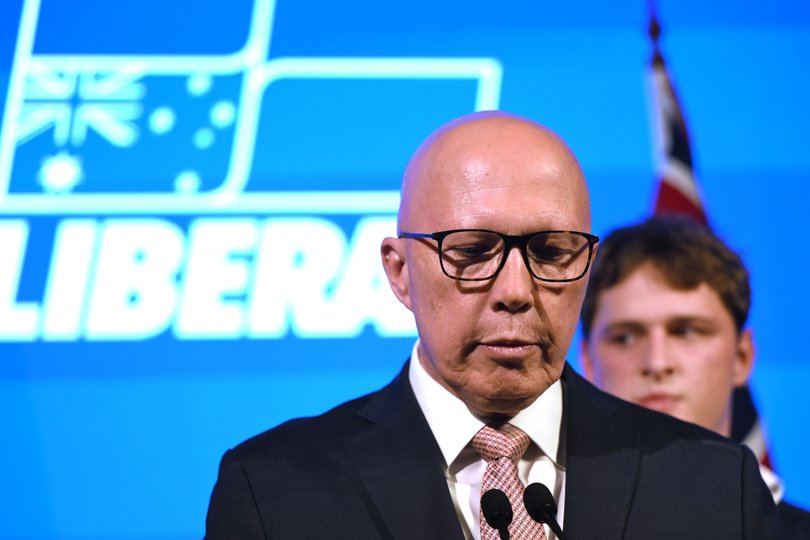
Michele Bullock: The Reserve Bank of Australia governor is not a politician, but is a political actor through her public commentary.
Three months ago Ms Bullock looked like a hero. Credited with bringing inflation down without driving thousands out of work, she delivered three interest rate cuts in six months.
In August she said the “cash rate might need to be a bit lower than it is today to keep inflation low”. Dr Chalmers and mortgagees were delighted.
But inflation accelerated in September.
The first woman to lead the central bank looks like she stuffed up. If interest rates increase, as some economists predict, Ms Bullock will be blamed, even though the Government’s spending spree made her job harder — a contribution Dr Chalmers will pretend never happened.
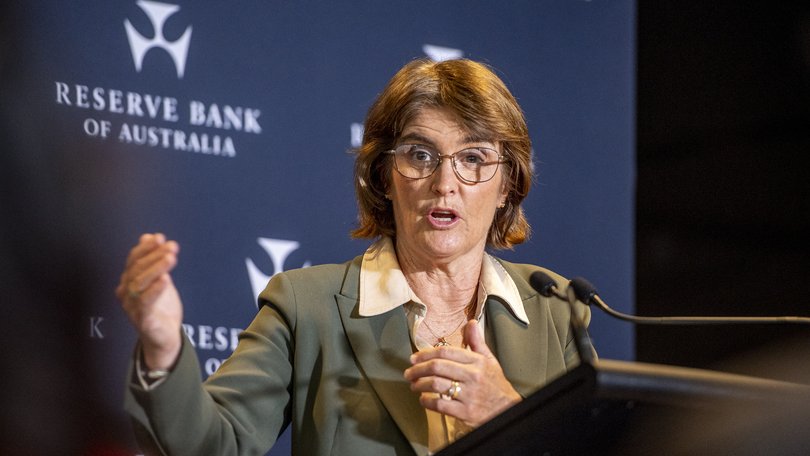
Private-sector workers: Getting a job has been relatively easy since 2022, if you wanted to work for government.
The federal public service expanded by around 39,000 to about 200,000 positions in June at an extra cost of $6 billion a year.
Those wages are paid by taxpayers, who have been subjected to a 28 per cent increase in personal income tax since Labor took power, according to calculations this week by shadow treasurer Ted O’Brien.
On an individual basis, workers are poorer, a fact obscured by immigration.
Jews: One of Australia’s smaller ethnic groups, the Jewish community has made an outsize contribution to business, medicine and the law. Leading members have long supported the Labor Party and backed Mr Albanese’s failed Indigenous Voice referendum.
The government’s decision to recognise a Palestinian state while the Israel-Hamas war was being fought repudiated decades of Jewish lobbying and may have emboldened anti-Semitic activity.
“This decision rewards the very actors who have worked to destroy peace efforts,” said Jeremy Leibler, a Jewish leader who dined with Mr Albanese at his Canberra residence last year, where they talked about Australia’s response to the war.
Lessons from 2025: The Year of the Snake demonstrated that a new Australia has emerged, one that embraces bigger government, higher taxes and less individual freedom.
It also witnessed the start of a backlash towards this state expansion.
Failed leaders departed public life. Future ones emerged. Groups large and small who never thought Australia would become hostile towards them received sobering lessons in the new order.

